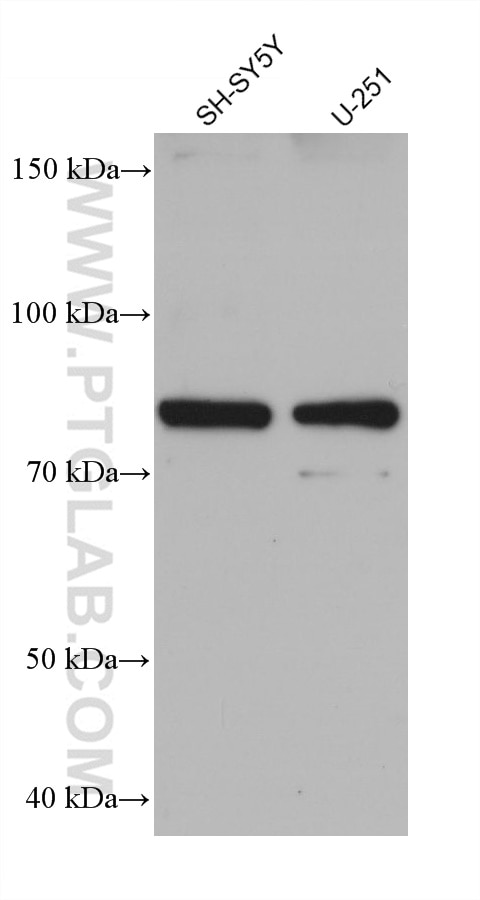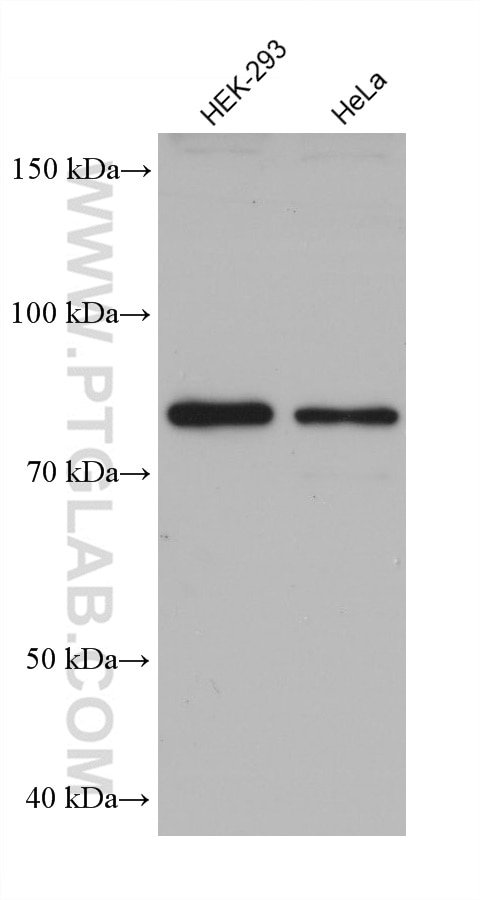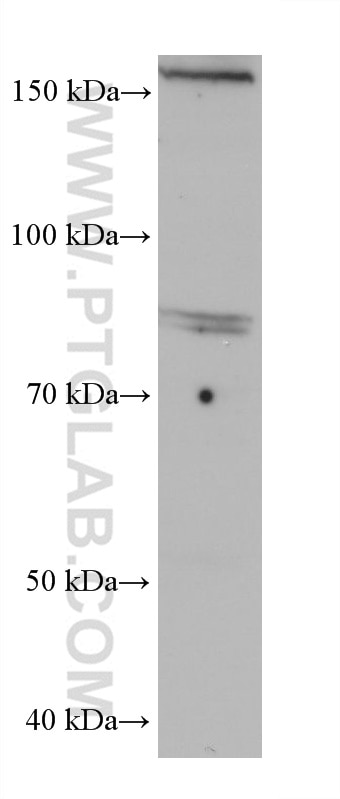Validation Data Gallery
Tested Applications
| Positive WB detected in | SH-SY5Y cells, HaCaT cells, HEK-293 cells, U-251 cells, HeLa cells |
Recommended dilution
| Application | Dilution |
|---|---|
| Western Blot (WB) | WB : 1:1000-1:6000 |
| It is recommended that this reagent should be titrated in each testing system to obtain optimal results. | |
| Sample-dependent, Check data in validation data gallery. | |
Product Information
68602-1-Ig targets INPP5E in WB, ELISA applications and shows reactivity with Human samples.
| Tested Reactivity | Human |
| Host / Isotype | Mouse / IgG2a |
| Class | Monoclonal |
| Type | Antibody |
| Immunogen | INPP5E fusion protein Ag11959 相同性解析による交差性が予測される生物種 |
| Full Name | inositol polyphosphate-5-phosphatase, 72 kDa |
| Calculated molecular weight | 644 aa, 70 kDa |
| Observed molecular weight | 72 kDa |
| GenBank accession number | BC028032 |
| Gene Symbol | INPP5E |
| Gene ID (NCBI) | 56623 |
| RRID | AB_3085298 |
| Conjugate | Unconjugated |
| Form | Liquid |
| Purification Method | Protein A purification |
| UNIPROT ID | Q9NRR6 |
| Storage Buffer | PBS with 0.02% sodium azide and 50% glycerol , pH 7.3 |
| Storage Conditions | Store at -20°C. Stable for one year after shipment. Aliquoting is unnecessary for -20oC storage. |
Background Information
INPP5E(72 kDa inositol polyphosphate 5-phosphatase) converts phosphatidylinositol 3,4,5-trisphosphate (PtdIns 3,4,5-P3) to PtdIns-P2.In mouse, highest protein expression was in brain, heart, and testis, with lower expression in thymus and lung, and very little expression in kidney, spleen, and liver(PMID:10764818). Defects in INPP5E are the cause of Joubert syndrome type 1 (JBTS1) and mental retardation-truncal obesity-retinal dystrophy-micropenis (MORMS)(PMID:19668215).
Protocols
| Product Specific Protocols | |
|---|---|
| WB protocol for INPP5E antibody 68602-1-Ig | Download protocol |
| Standard Protocols | |
|---|---|
| Click here to view our Standard Protocols |


